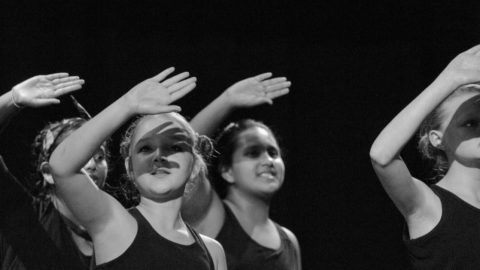By Nigel Pugh
First of all, let me state upfront that I am a great fan of “online” learning, having recently traded my Netflix account for The Great Courses Plus, an online educational platform that hosts a huge variety of lecture series on a number of topics ranging from history, literature, mathematics, and science to leisure hobbies like cooking and how to play piano and guitar.
In my opinion, online learning has the potential to change how our society views education over all. When I recently had to learn how to fix my toilet (I’m not much of a handyman) what was the first thing I did? I watched a YouTube video.
So the big question is, “Can we learn how to play guitar or any other instrument effectively from videos?” This is a very difficult question to answer. In some ways, yes; in other ways, no. For the more experienced musician, I would say absolutely yes. When you’ve already developed the necessary technique and requisite musical understanding, online learning can open a huge opportunity for advancing your musical education, especially in regard to theory.
However for a beginner, online music instruction can pose several problems. First and foremost, there is no instructor present to gently guide the process of developing “proper” technique. It’s one thing to listen to instructions and quite another thing to execute that technique without a teacher to make sure you’re not making mistakes and developing bad habits.
This is the heart of the issue. Without a teacher present to help the beginner, there is no way for the student to know they are making errors, and the end result will be the development of bad habits.
So what is a bad habit versus correct technique? Technique is synonymous with efficiency. Playing with good technique means efficient use of the body and corresponding musculature with as little effort as possible. Bad technique is simply the absence of this, and one might be surprised how easy it is to slip into a bad habit, but it happens. I’ve had to relearn many techniques during my musical education.
When learning online, there is one other huge barrier. You can’t ask questions. The most important question any student can ask is “why?” Why this way and not another way? The teacher represents a huge resource for the student when questions arise. The teacher’s responses may only be opinion but they are a good starting point for further thought and inquiry about whatever issue is being discussed.

Nigel Pugh, HCA Guitar Instructor
“You’re doing awesome!!!” A video can’t offer real genuine encouragement. Learning any art or instrument can be a frustrating journey at times and sometimes it takes a smiling face and a gentle reminder that “you can do it.” The instructor, having travelled that path before you, is there to share your frustrations and triumphs.
Finally, a video, or book for that matter, can’t get to know you as a real living human being and appreciate all the wonderful nuances that make you, You. When a teacher gets to know you, they learn your strengths and weaknesses and can adapt their teaching strategies to match, making the most out of the shared time you have together. In return, you will get to know your instructor and hopefully see some of the forces that made them who they are. It is this exchange of shared human emotionality between student and teacher that makes all the difference in the world when learning anything, especially how to play an instrument.
So, things to keep in mind: a teacher can watch your progress, correct mistakes as you go, answer any questions that might arise over the course of instruction, give encouragement and patience in times of self-doubt, and offer a genuine exchange of hard won knowledge from one person to another, finding love and joy in the process. Can a video do that?
Nigel Pugh is an HCA Guitar Instructor with availability in Fall 2019. If you’d like to book a free 15-minute trial with Nigel or another music instructor, please contact HCA at 905-528-4020 or info[at]hcarts.ca.








